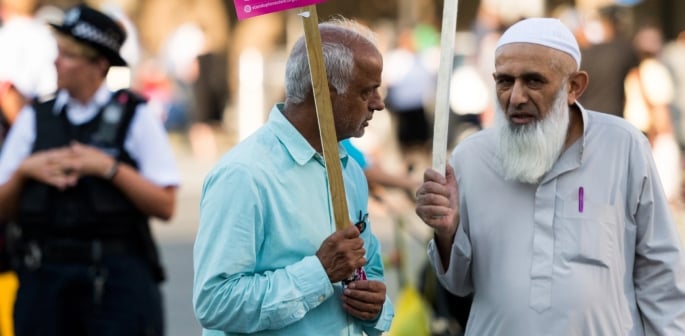Hate crimes, by definition, are violent acts committed against people due to their ethnicity, sexual orientation, or cultural beliefs.
They can force people to move out of their homes over fear of safety and be costly as people may have to repair their cars and clean off graffiti from their property due to attacks.
Hate crimes have always been present in the UK. However, since 2010, the frequency and severity of them have increased significantly.
Between March 2021 and March 2022 alone, police recorded a 26% increase in hate crimes within the UK across all five of its recorded categories.
The police monitor five strands of hate crime based on:
- Race or ethnicity.
- Religion or beliefs.
- Sexual orientation.
- Disability.
- Transgender identity.
Race-based hate crimes made up most of the offenses with 109,843 recorded between March 2021 and March 2022 – nearly a 20% increase compared to the same period in the year before.
Religious hate crimes also increased by 37% to 8,730 cases with two in five of those crimes aimed at Muslim people, and one in four aimed at Jewish people.
Crimes aimed at disabled people increased by 43%, the largest increase seen since March 2017.
While the cases of hate crimes have increased over the years, this does not mean that the whole of the UK is becoming hostile and these instances only happen in certain circumstances.
Rishi Sunak vs Hate Crime
Rishi Sunak’s entry into 10 Downing Street marked an achievement for the first British South Asian prime minister.
While most of the population welcomed the diversity, there was a backlash from some.
A caller told the LBC that “Rishi’s not even British”. However, in a study performed by IpsosUK, only 3% of those asked agreed that to be British you had to be white.
This is a significant decrease from the 10% that agreed with this statement when the study was done in 2006.
9% also said that they would feel negative about having a prime minister from an ethnic minority background….
Read the full article here





